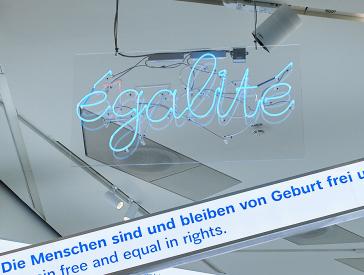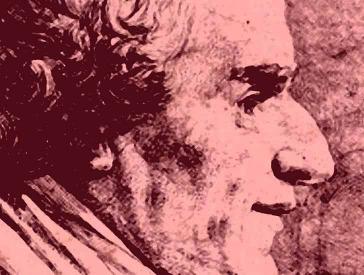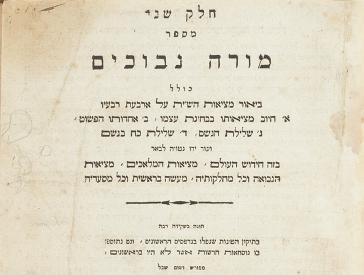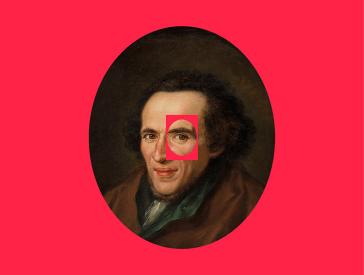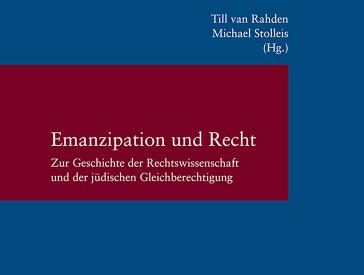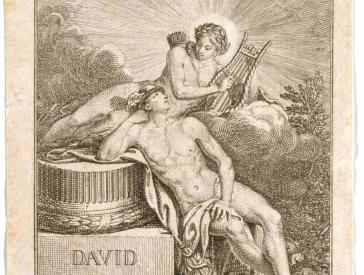Haskalah/Enlightenment
The Hebrew term Haskalah (השכלה) designates the Jewish Enlightenment. Its root is composed of the letters shin (ש), kaf (כ), and lamed (ל), which on their own spell the word for “sense” or “reason.” Thus, the term itself refers to the Haskalahʼs objective: to preserve the Jewish-Hebrew legacy – and also to respect reason. The task amounted to no less than reconciling religion with philosophy and science.
The Haskalah emerged at the end of the 18th century in Berlin and Königsberg and was part of the European Enlightenment movement. Its followers, the maskilim, wanted to put an end to the cultural and societal isolation of the Jewish community. They called on Jews to educate themselves and acquire secular knowledge a path that they had successfully taken themselves. They attempted to reconcile traditional Judaism with the modern culture of their age. In addition, they emphasized the elements of Jewish tradition that Judaism and Christianity had in common, giving the Bible and biblical Hebrew priority over the Talmud.
The maskilim founded modern Jewish schools. In books and magazines they promoted their ideas among the Jews in Germany and later in Eastern Europe. A few of the salonières were among the very first Jewish women to publish writings under their own names. Since all these writings for the most part were directed at a Jewish audience, the authors often used the Hebrew language. Others wrote in German in order to achieve their Enlightenment goals. Some of these writings were printed with Hebrew letters, since the majority of the Jewish population was more familiar with this alphabet.
An additional goal of the maskilim was to enlighten the non-Jewish population. They pointed out that the Jewish religion did not stand in opposition to the modern philosophy of the Enlightenment and that Jews and Christians were equals. They fought for equal rights and societal recognition of the Jewish minority.

Transition to the section When Jews Became Germans in the museum's core exhibition; Jewish Museum Berlin, photo: Yves Sucksdorff
The symbolic figure of the Jewish Enlightenment was Moses Mendelssohn who strictly followed Halakhah, the Jewish religious law, but many of his successors openly criticized the Jewish tradition. They called for a reform of Judaism and the abolishment of all commandments that were difficult to reconcile with life in a society. Thus, in the age of the Enlightenment, German Jews set out on a complicated tightrope walk, caught between the desire to integrate and the wish to retain their religious and cultural uniqueness.
Who was Moses Mendelssohn?
Moses Mendelssohn (1729–1786), a leading philosopher of the Enlightenment who championed legal equality for Jews in Germany


